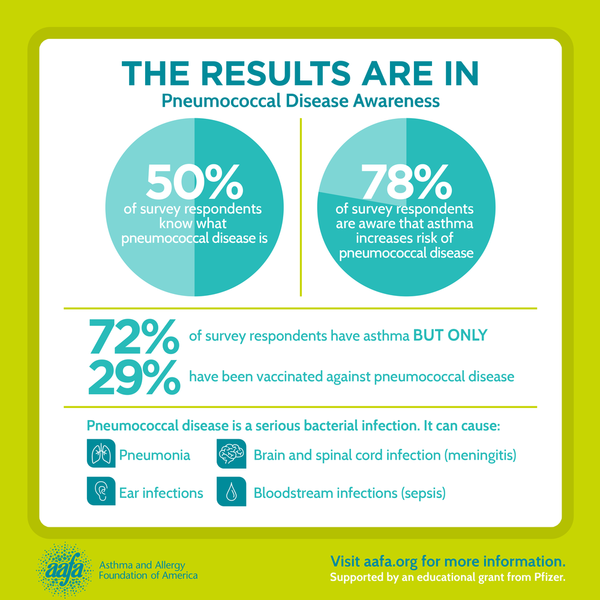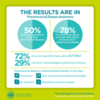Recently, we asked you to tell us what you know about pneumococcal [noo-muh-kok-uhl] disease. The results are in. Even though about 50,000 people die each year from pneumococcal disease, only 50 percent of survey respondents know what it is. Only 29 percent know if they have gotten the vaccine.

If pneumococcal bacteria spreads to your lungs, it can cause pneumonia, which is serious for people with asthma. This type of infection can lead to serious illness and even death. It can also cause sepsis or meningitis.
What Are the Symptoms of Pneumococcal Disease?
Symptoms usually appear suddenly. You may have a combination of the following symptoms if you get pneumonia, sepsis or meningitis:
- Difficulty breathing
- Chest pain
- Cough (you may cough up greenish or yellow mucus)
- Shortness of breath
- Fever
- Sweating and chills
- Stiff neck
- Disorientation (confusion)
Call your doctor right away if you have these symptoms.
How Can I Prevent Pneumococcal Disease?
The best way to avoid getting pneumococcal disease is to get vaccinated. People at risk should get the vaccine. It is also a good idea for other family members to get the vaccine, even if they aren’t at risk. People at risk are:
- Children younger than 2 years old
- Adults 65 and older
- Adults with weak immune systems
- Adults who smoke
- Anyone with a chronic disease, such as asthma or other lung diseases
If you have asthma, you should know how to protect yourself against it. To reduce your risk, learn more about the disease and ask your doctor about the vaccine as soon as possible.
Download, Print, Share This Guide

Originally published April 2017, republished August 2017


Comments (0)